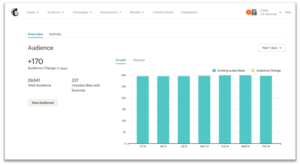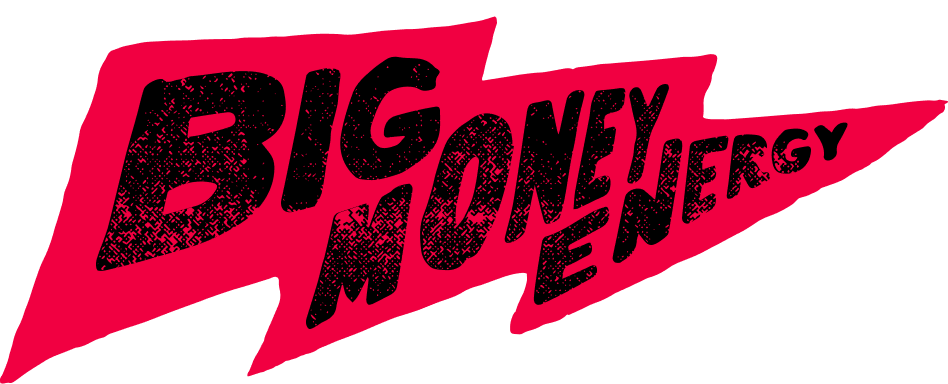Finding an Operator That Can Make You $$$ on Auto-Pilot
Nathan Barry grew Convertkit to $80mil + in revenue, Mike Dillard is a multi-time 8-figure entrepreneur, Nick Huber founded a company that has grown to 34 major colleges in 9 states, services over 10,000 customers each year, has a team of 5 full-time employees and over 200 part-time employees, as an undergrad in college. What do they all have in common? They all spoke at Contrarian Uncon.
Contrarian Rant
Most people who are in the US are poor because of their own decisions.
Wow, there’s a statement to fire up the haters. I say this not to be an a**hole but to give you permission. It’s in your control. Wealth building can happen for you, but ONLY YOU can decide to go get it. No one else will come to save you.
No government. No entity. No human.
You are your last chance. So, let’s start taking names with hard truths.
If you don’t focus on wealth, scarcity will find you.
If you don’t obsess over your finances, you’ll soon have none.
No one cares about your financial freedom more than you do. No one.
And yet how many of us set the time to ensure the lifeline of our business revenue is flowing and being spent appropriately? How many of us spend more time watching Netflix or scrolling through Instagram instead of mapping our financial future?
I used to be VERY guilty of this—no finger-pointing. But then, I woke up and realized how much time I was squandering. It wasn’t easy dropping my wasteful habits but I did. And so can you.
The question is…will you?
Today in < 10 minutes → We’re Going to Dive into:
- How to find the right operator
- Potential or proven talent—Which should you choose?
- Why you should never pass on former leaders
- Four things to look out for when interviewing operators
A very successful, multi-business owner friend of mine, Matt Aitchison, was walking with his mentor David Osborn.
David is worth hundreds of millions of dollars and has one of those lives we all dream about. Matt told me he thought the first encounter would involve general questions and life lessons. He was wrong. David went deep and specific:
- What’s your net worth?
- How much do you earn a month?
- Spend monthly?
- Portfolio breakdown?
- Acceleration of each income stream?
Matt quickly realized he had so few of these answers dialed in. Then David said something he’ll never forget:
“You will never be successful if you don’t understand your finances. They are your foundation. And if you don’t know them, you’re building a house on sand otherwise.”
That line stuck with him. Matt vowed to never be caught off guard by how he runs his finances.
The truth is this. Freedom is a luxury only for the financially independent. And financial independence can only stem from being financially aware. After all, where your attention goes, your energy flows.
So Matt made himself a promise and created a system to ensure he kept it. Every week, he holds something he’s dubbed ‘Financial Fridays’, where he goes over the finances of all his businesses every week to keep a pulse. This also includes an assessment of his personal finances and an overview of all his investments… weekly.
I, of course, stole this idea.
Taking a page out of Matt’s book, I have my own Financial Friday overview 1x a month. With our heads bent over my computer, my fiance and I go over our finances with a spreadsheet that looks a lot like this:
It ain’t fancy. It is a standard example of a personal P&L (Profit & Loss statement). By showing the different COAs (Courses of Action) you can tweak, it helps you see what your income and expenses could be. It’s a tool I can’t recommend enough. Heck, we even give copies of this template to new members of our cashflow course.
So if you don’t already, start having Financial Fridays. Begin with drawing up your own P&L. If you’re starting a new venture, hunt down the successful owners/operators in your business and get them to reveal their KPIs (Key Performance Indicators). Feel free to replicate how my good friend, Lisa pulled this off when she was starting her mini-mailbox business—which now does $260k in annual profit, I might add. Unearth critical info like their revenue, costs, profitability, weekly/monthly trend line, etc.
By identifying what works and what doesn’t, you’ll be learning. And when you learn, you earn.
Why Hire An Operator?
Cashflow…we all want it. Why else would I be running around buying laundromats?
But the irony is, it’s one thing to shell out for a profitable business. It’s another to run it and actually keep it profitable.
As humans, it’s only natural to assume no one can take better care of our assets than us. Especially when the assets in question are businesses. That’s why it’s common to see a lot of micro-managing from owners in their first business acquisitions.
But what happens when your portfolio expands to 5 companies? Or 3,10, maybe even 20? Will you still involve yourself in the day-to-day running of each one? Will you even be able to?
This is where an operator comes in handy.
Choosing the ideal partner that knows your industry inside out and can manage your business profitably is one of the critical decisions you’ll make. Because when you get it right, your profits stream in on auto-pilot. And the best part? You don’t get to lift a finger.
So, how do you find these operators that’ll turn your business into a passive cash flow stream?
Profit vs. Pay
I know I yell this several times a day but I’ll say it again for the kids in the back! Make sure there is enough profit in any deal before you buy.
But how much is ‘enough’? If the business’s profit margins are large enough that you can hire a quality operator and still hit your personal profit goals, then yes, that’s enough.
A site like Glassdoor can help with your research. For instance, if I were buying an auto repair shop in Boston, I’d need to budget $60K a year + bonuses to hire an operator to run the shop. Knowing this figure, I can easily subtract this expense from the shop’s profits and see if there’s still enough for me to take home.
Finding the Right Partner
Spend the time to find the right partner.
The best partner is always one of two things.
- Someone you know and trust to do the job. Or
- Someone who has done the job before.
Personally, I prefer to not have people learn on my dime. But if I can bring someone up in the business, that’s ideal. If that’s not possible, then I go out and find someone who knows the business or someone who shares some history with me.
However, that’s easier said than done.
The trick to finding the best operator available is to either make your search as expansive as possible or as targeted as possible.
That means posting on Indeed, Craigslist (depending on the role), and social media. It also means (a smarter, more targeted strategy) calling managers of competing companies, reaching out to people in your network to make requests you wouldn’t ask on a normal day. i.e…. recommendations for their favorite mechanic.
Proven or potential talent—Who do you go with?
If you wanted fish, the logical place to go would be water. Right?
It’s the same with proven talent. When it comes to finding capable operators, your best bet is to go look at jobs with similar responsibilities. So, here’s what I usually do.
If I were in the market for a manager at my local auto shop, I would make calls to managers at any local franchises around. Then I’d ask them to return my call in their off-time if they were interested in running their own garages without the constraints of franchise rules. You’d be surprised at how many rings you’d get after 5 P.M.
Another tactic would be to take my car to these shops and be a customer. By watching these managers inspect my work, I’d be getting first-hand info on which of them are hyper-competent.
However, keep in mind that proven talent will cost more in initial compensation. There’s no getting around it. And if you’re ever tempted to skimp on hiring decisions, remember these wise words.
Consider offering a bonus-based pay or an earn-in/buy-in for equity. With proven talent, you always want to tie your revenue goals to their personal goals through compensation packages. That way, everyone wins!
That said, it doesn’t mean that potential talent comes at a cheaper price. You’ll just be paying in a different kind of currency—time and training.
In April, we ran a piece on how former Miss Nevada started and scaled her mini-mailbox business. Think she licks the stamps herself and slaps them on boxes day-in-day-out? Not anymore.
As a serial entrepreneur, Lisa understood the upside of having operators that could manage her business with minimal input from her. That’s why she hired cocktail waitresses off the Vegas strip. But why waitresses? You don’t get to be in the service industry for long if you aren’t a quick learner and a natural hustler— which are two essential skills for any good operator.
And how has that hiring decision worked out for Lisa?
Let’s see. She’s on her third location, and cash flows hundreds of thousands in profit. You do the math.
Look for experience as well as past leadership.
When it comes to human behavior, there are two principles I live by.
‘The past is the best predictor of the future’ and ‘Past behavior is usually future behavior.’
If someone was the captain of their baseball team or a military officer, that’s a good indication. While searching for a compatible business partner, keep your eyes peeled for a previous leader. Because while there’s no getting out of training your new operators in technical skills, you could luck out and stumble on a well-formed manager who needs no training in leading others.
Yes, you could promote an employee into leadership if they have the right culture, goals, and skill set. But I’ll typically take leadership quality over skills. Why? Because a true leader knows their shortcomings. You can trust them to step up and learn the skills they’re lacking so they can lead effectively.
That’s why I actively seek out former military members when hiring operators. With their discipline, tendency to establish hierarchy, and ability to make decisions under pressure, I like their profile.
Career transition programs for ex-military personnel are a great place to scout for potential partners. Most of the veteran hires I have made were through friends, or the Seal Future Foundation, Goldman Sachs Veteran Integration Program, and the Veteran Career Transition Assistance Program (VetCTAP).
You can also get the word out on veteran job boards. Sites like Hire A Hero and Recruit Military are boundless pools of military talent.
Four Things I Look Out For When Interviewing Operators…
So you found your guy. Or girl.
Or at least, someone that looks like them. But you need to ensure they are the right person for the job. How do you do that?
I always look out for four things when interviewing potential partners.
1.) Experience – both in the business and as a leader. Never be hesitant to dig into their experiences by having them run through every job on their resume. What did they do? What did they love? What did they hate? What would they have done differently?
2.) Culture – Do they fit the core values of your company? More importantly, do their core values align with yours?
3.) Goals – Do their future goals align with the opportunity? I don’t want to make another hire in a year if they’ll outgrow this job quickly. My only exception is if I have somewhere else for them to move up to, and they can hire their replacement.
I don’t restrict myself to their compensation goals alone. I look at the whole picture. What do they want their life to look like in 3-5 years? How can they see this position helping them to attain those goals?
4.) Behavioral Assessment – I am a huge believer in using a behavioral assessment for hiring. Especially in leadership roles. Not every role requires the same behavioral patterns. But just as people vastly differ, so do their natural behavioral responses to scenarios. Using an assessment like the DISC or Myers-Briggs can help you determine if they are a good fit for the position.
It’s not to say the operator in question cannot succeed if they are not a 100% match. It just means they will be constantly asked to do things outside their natural behavior pattern and that can wear them out over time. Personally, I have found that the precise assessment match is a strong indicator of success in a role.
Again, there are no right or wrong answers to behavioral assessments. And their goal certainly isn’t to prove who’s better than who. They only serve to highlight that certain behaviors are a better fit for certain jobs than others.
Giant Disclaimer: Last I checked, I didn’t have a psychology degree. So trust your gut, I’m not an expert here.
Remember this.
People will always try to lecture you on why you can’t have multiple businesses without maximizing your first…or even at all. Give them a minute of your day and they’ll talk your ear off about how you can’t be multi-passionate.
These people are full of it.
So rather than listen to the nay-sayers, do the opposite and decentralize your income. After all, that’s what DeFi, crypto, and Bitcoin are all about, right? Decentralization. When you do, you’ll drastically reduce the odds of a singular fail point in your finances. And what could be more freeing than knowing you’ll always have cash flowing in from somewhere…no matter what?
Question everything and build your team,
Codie.
IT’S ALL ABOUT THE HUSTLE
Looking to make some part-time cash? Check out our side hustle series on Tiktok
- Meme Account Flipping – Those silly Twitter accounts may be 8 figures more than you think.
- Bankruptcy Auction Bidding – Where else can you buy a genuine Rolex for $10k and resell at 3x?
- GLG Consulting – Cashflow $500 to $1k an hour just by sharing your professional expertise.




